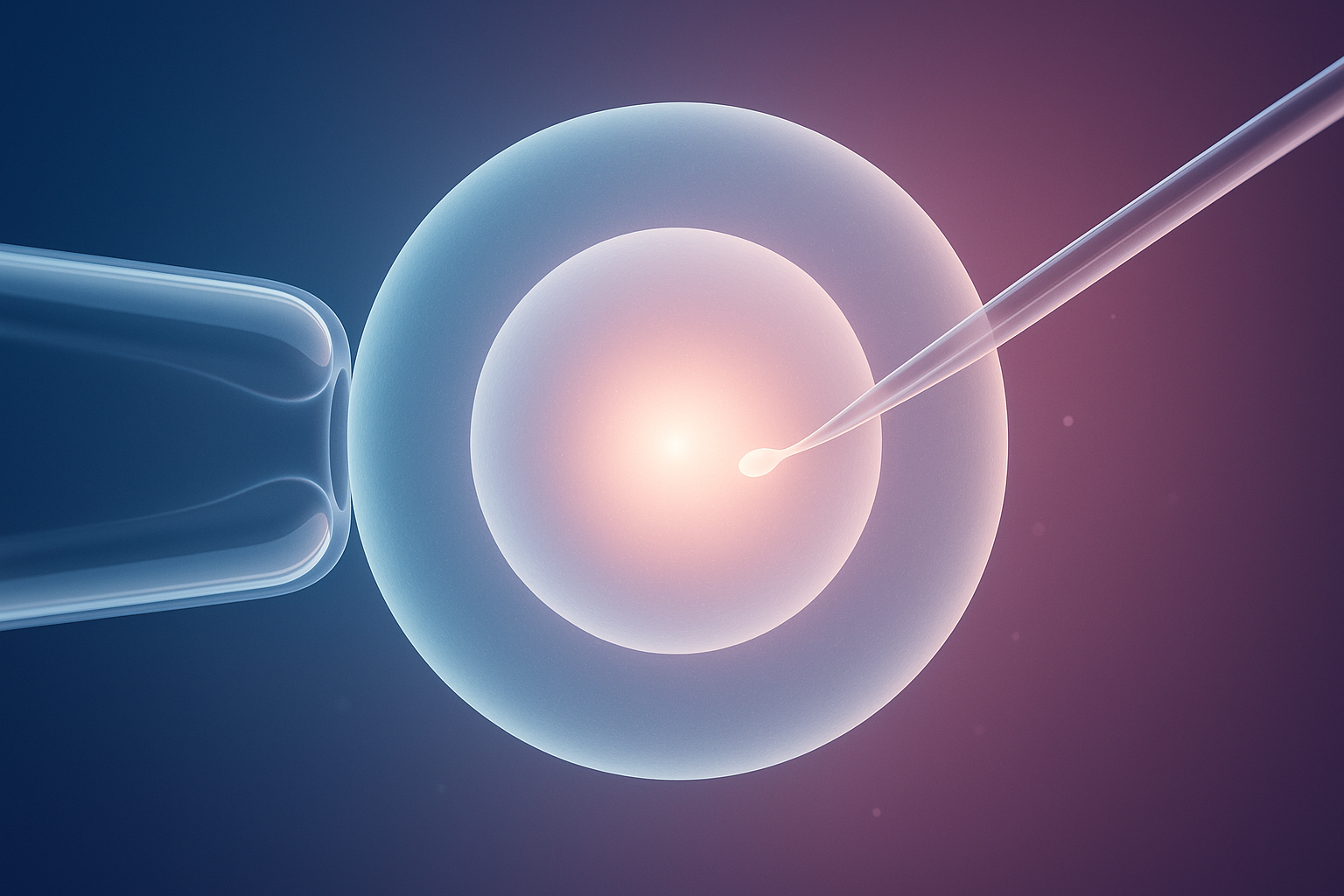


ICSI (Intracytoplasmic Sperm Injection) is an advanced form of IVF where a single healthy sperm is directly injected into an egg in the lab. This method gives nature a helping hand — especially when the male partner’s sperm has trouble reaching or penetrating the egg naturally.
ICSI significantly improves fertilisation chances in couples facing male factor infertility, previous IVF failure, or other complex fertility concerns. At Dr. Aishwarya’s clinic, this technique is performed with utmost precision by an experienced embryology team under her direct supervision.
In natural conception or standard IVF, thousands of sperm surround the egg and one eventually enters to fertilise it. But when the sperm is weak, low in number, or not moving properly, this process can fail.
ICSI solves this by selecting a single healthy sperm and injecting it directly into the egg using a microscopic needle.
This advanced lab procedure increases fertilisation success — especially in difficult cases — and is commonly used alongside IVF for better outcomes.
ICSI is a preferred choice when there are concerns related to sperm health, fertilisation, or previous IVF results. It is typically advised when:
– Low sperm count (oligospermia)
– Poor motility (asthenospermia)
– Abnormal sperm shape (teratospermia)
– Blockages preventing sperm release
If a previous IVF cycle failed due to poor fertilisation, ICSI gives better control and improved chances.
For men with no sperm in ejaculate (azoospermia), sperm can be retrieved from the testes and used in ICSI.
When the sample is limited or not fresh, ICSI ensures better utilisation of available sperm.
Sometimes, even with normal reports, eggs fail to fertilise. ICSI improves outcomes in such cases.
The ICSI procedure is part of the IVF cycle, but the fertilisation method in the lab differs:
Just like IVF, the woman is given injections to stimulate multiple eggs. Mature eggs are collected through a safe, minor procedure under anaesthesia.
The male partner provides a semen sample. If needed, sperm can be retrieved surgically (PESA/TESA).
The best-looking and most motile sperm are selected under a microscope by the embryologist.
A single sperm is injected into each mature egg using a fine glass needle under high magnification.
Fertilised eggs (embryos) are grown for 3–5 days and the best one(s) are transferred into the uterus.
Fellowship-trained in IVF & ICSI techniques from Milann, Bangalore
Experience with 50+ egg retrievals and 20+ embryo transfers
Works closely with expert embryology teams for optimal results
Keeps you fully informed — from fertilisation updates to transfer planning
Honest advice on when ICSI is truly needed — never overused
No. The injection is done in the lab under a microscope — not inside your body. The egg retrieval is done under anaesthesia and is painless.
ICSI is better only when sperm issues are present or previous IVF attempts failed. It’s not needed for every case. Dr. Aishwarya will advise based on your reports.
No. Twins occur only if more than one embryo is transferred. You and the doctor will decide how many embryos to transfer.
ICSI is safe and widely used. Very rarely, an egg may get damaged during injection — but experienced embryologists minimise this risk.
Yes. You’ll receive clear updates after fertilisation, embryo development, and before transfer — so you feel confident and involved.
When sperm quality is a challenge, ICSI offers the exact support your fertilisation process needs. Take the next step with a team that puts your outcome first.
Dr. Aishwarya S Fertility & Reproductive Medicine Specialist dedicated to compassionate, evidence-based care for individuals and couples.
© Copyright 2025 @ Dr.Aishwarya | Designed & Developed By MediGrow.ae